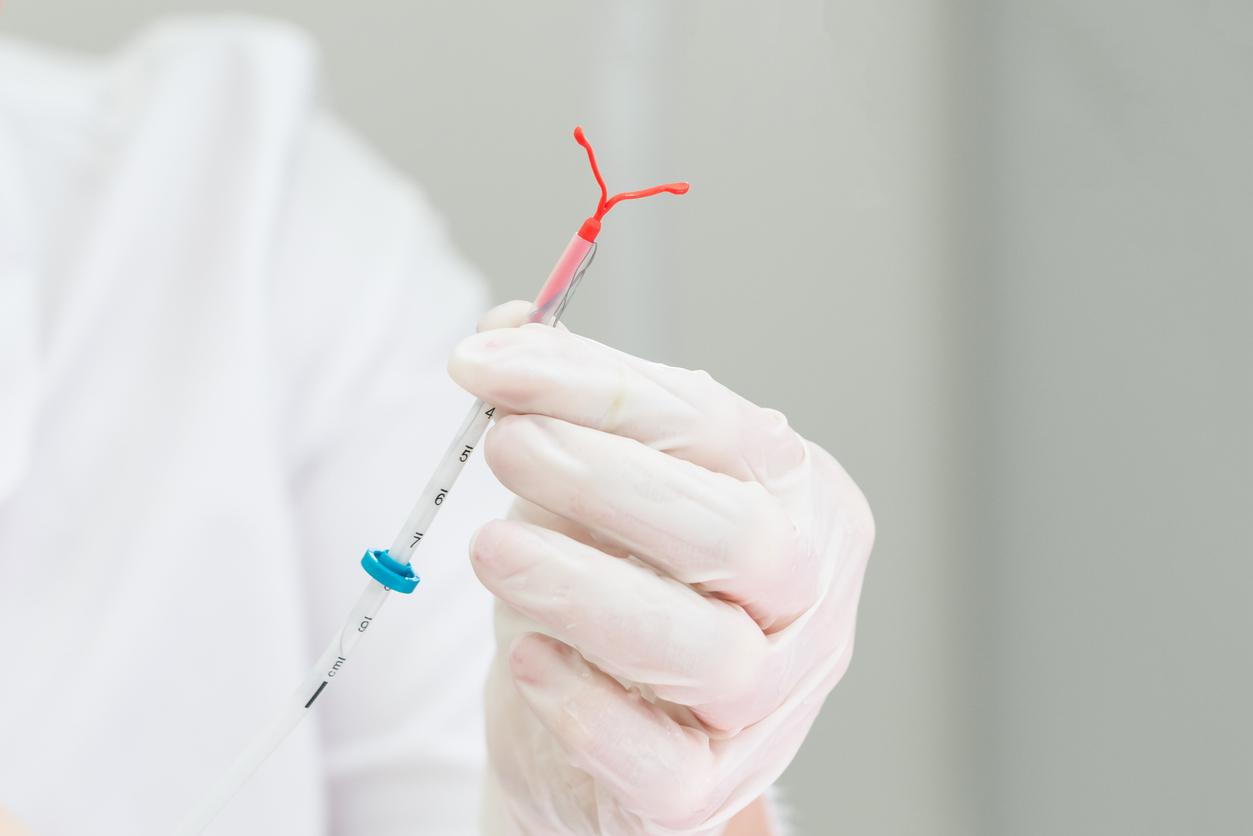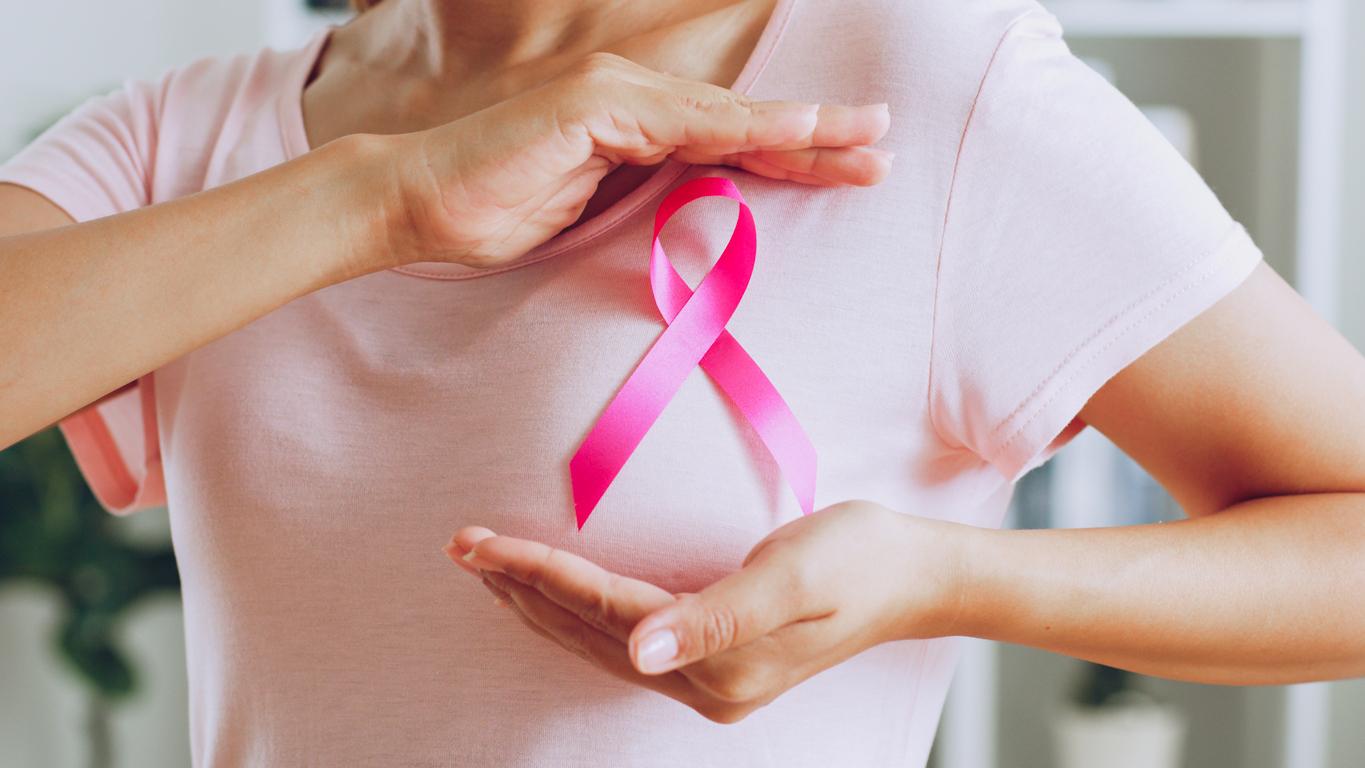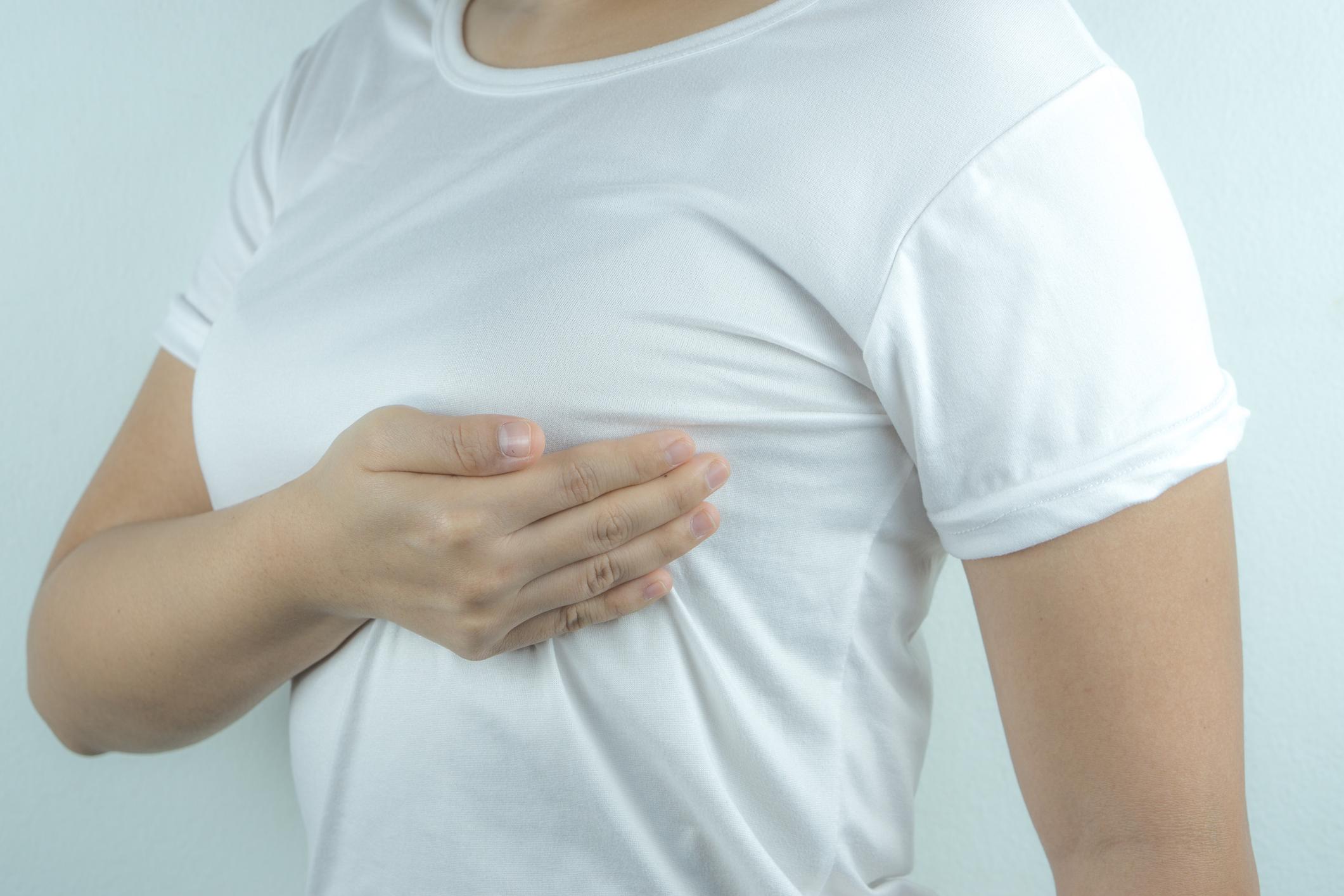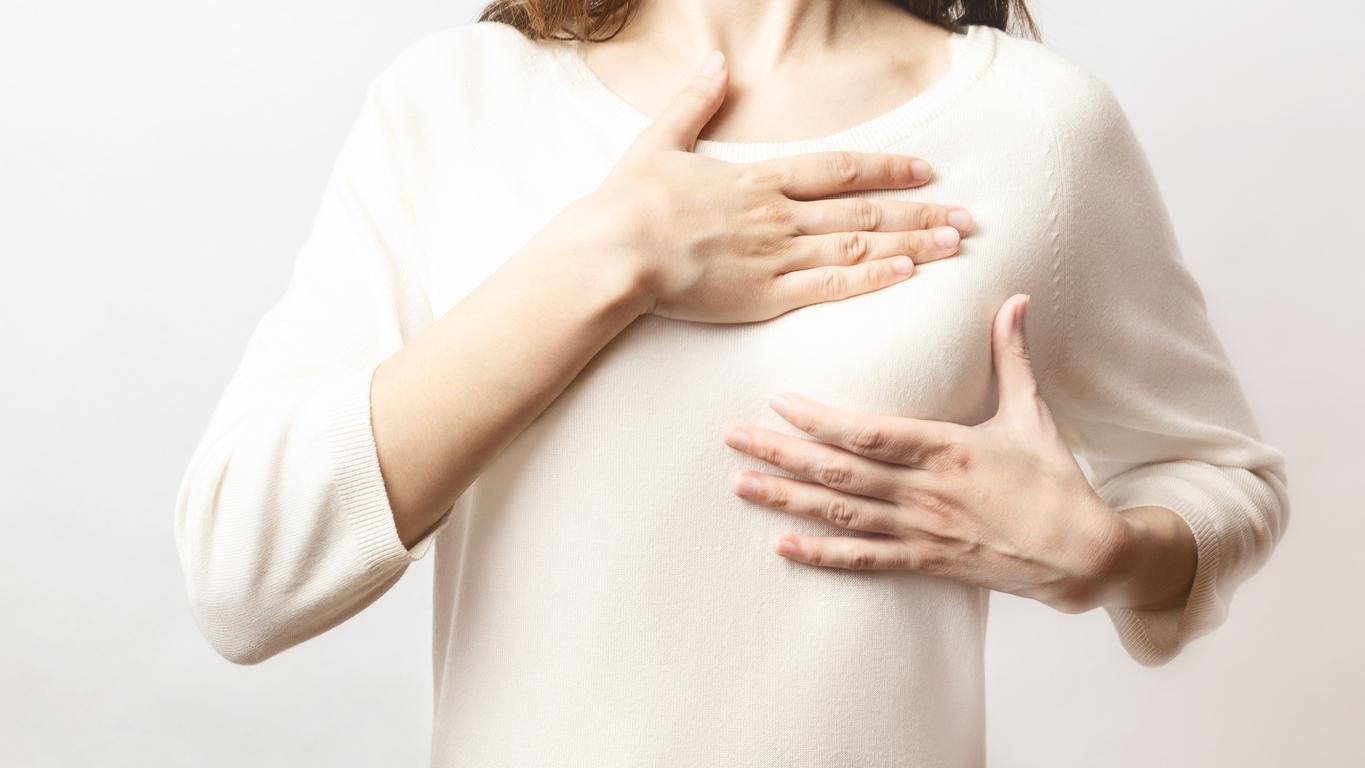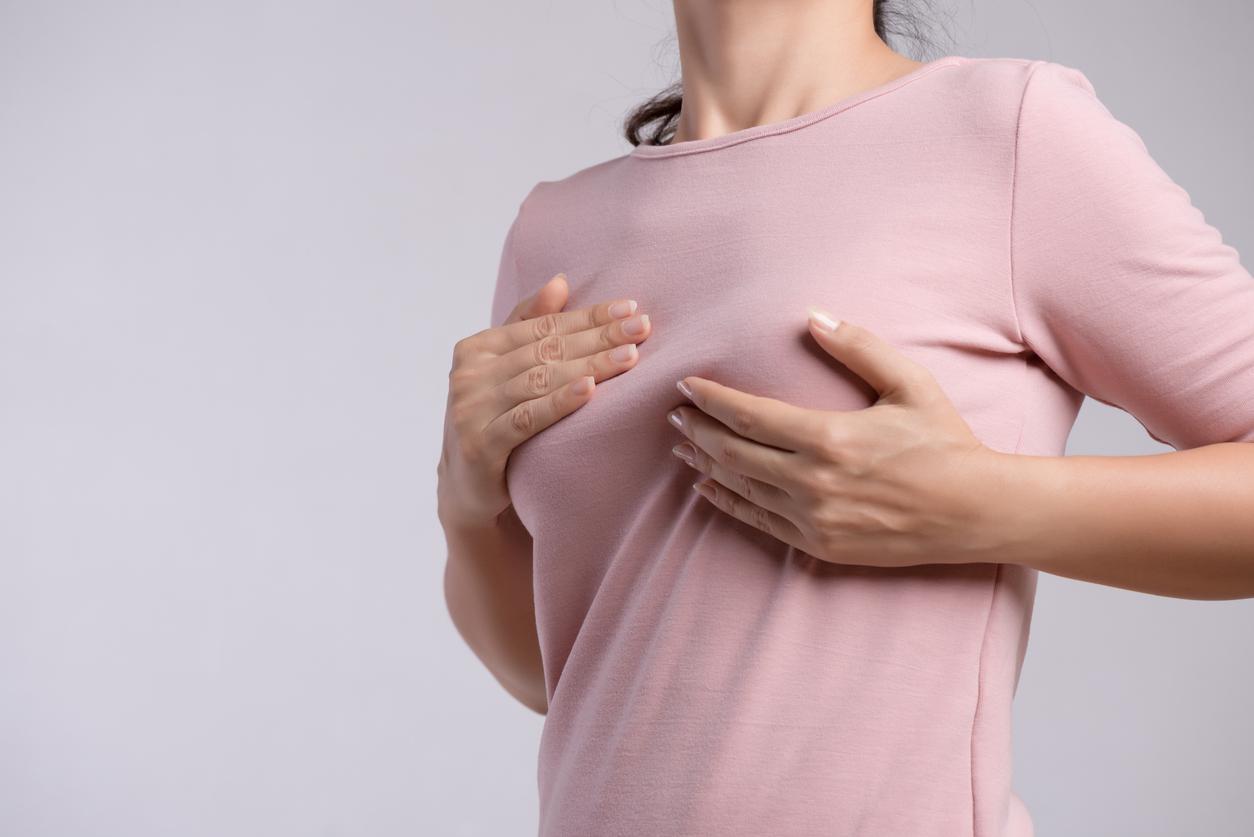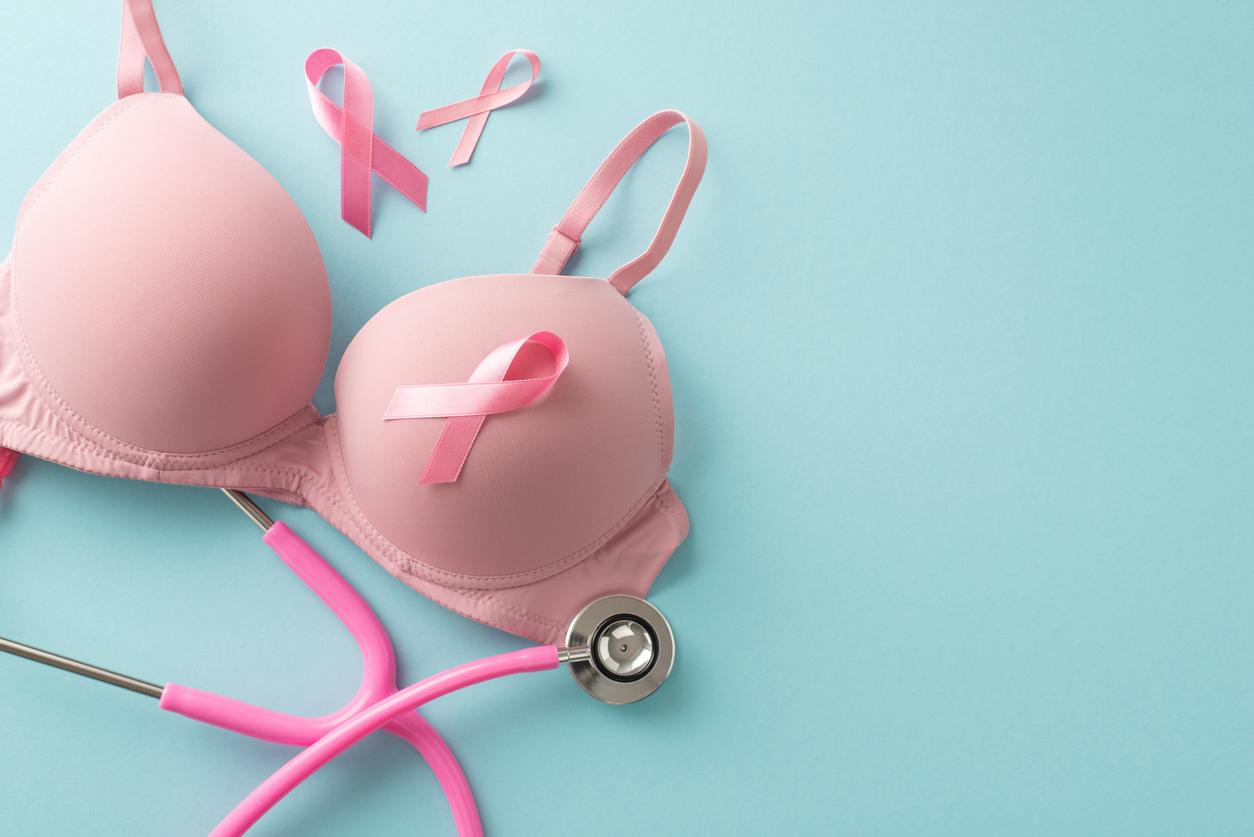A study suggests a link between aluminum salts, found in many cosmetics, and the risk of breast cancer. A result which consolidates the French position.

Do antiperspirant deodorants containing aluminum salts promote the development of breast cancer? Without being affirmative, two Swiss researchers suggest that the risk exists. In mice, they have shown that exposure of mammary cells to aluminum salts between 4 and 6 months causes tumors and metastases. Results published in the journal International Journal of Cancer which reinforce the precautionary measures adopted by the French health authorities.
The National Agency for the Safety of Medicines and Health Products (ANSM) looked into the dangers of aluminum-based antiperspirants in 2011. “More than 25 aluminum compounds are among the substances likely to be used in cosmetic products. Aluminum chlorohydrate is one of the most widely used, in particular as an antiperspirant, ”the ANSM experts recalled on this occasion.
Skin absorption little studied
Due to its use, oral absorption of this substance is limited. Many studies show that once in the body, it can reach the brain and cross the placental barrier.
On the other hand, as regards the fate of aluminum when it is absorbed through the skin, the question remains unanswered. “The published studies are of insufficient quality and do not meet current requirements”, estimated the ANSM experts in 2011.
Work carried out in the laboratory on human skin – and examined by the ANSM – showed that the cutaneous absorption was approximately 0.5% (i.e. 2.1 μg of aluminum per kilo and per day) when an antiperspirant containing 20% aluminum chlorohydrate is used every day. On damaged skin, as can be the case after shaving or waxing, the absorption rate rises to 18% (75 µg of aluminum per kilo per day).
A concentration of less than 0.6%
Considering that the safety margin is 10.5 µg of aluminum per kilo and per day, the ANSM judged “that exposure to antiperspirant products with concentrations of 20% of aluminum chlorohydrate do not not ensure the health safety of consumers under normal conditions of use ”. The experts also pointed out that this assessment did not take into account the total exposure to aluminum contained in the various cosmetic and everyday consumer products.
The health agency then recommended to restrict the aluminum concentration to 0.6% in antiperspirants or deodorants, and not to use these products if the skin is damaged.
In 2014, it was Europe’s turn to take a decision, but the European Scientific Committee for Consumer Safety did not deliver an opinion as clear-cut as the ANSM. Despite “the lack of adequate data”, experts felt that “aluminum, at the levels achieved through the use of cosmetics, is unlikely to be carcinogenic” or “to increase the risk of breast cancer, Alzheimer’s disease, Parkinson’s disease or other degenerative diseases ”.
Result: France has not been heard and most anti-perspirants sold on the market contain more than 0.6% aluminum.
.









